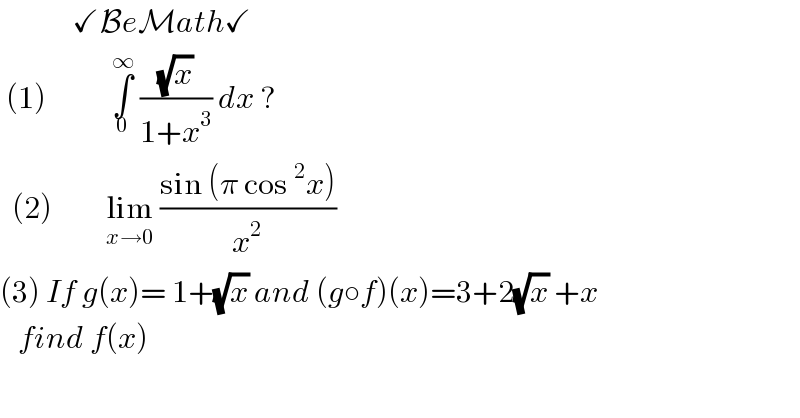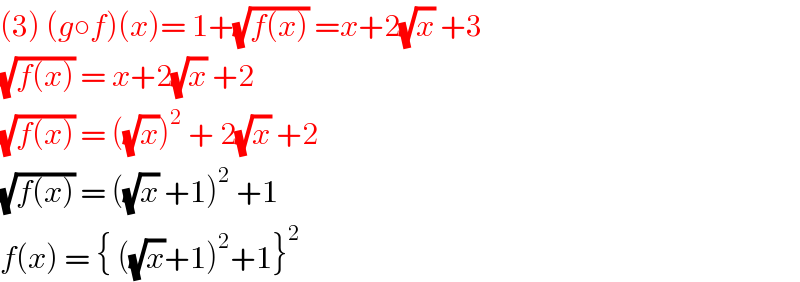
Question and Answers Forum
Question Number 107706 by bemath last updated on 12/Aug/20

Answered by bemath last updated on 12/Aug/20

Answered by Dwaipayan Shikari last updated on 12/Aug/20

Answered by Dwaipayan Shikari last updated on 12/Aug/20

Answered by john santu last updated on 12/Aug/20
![((♣JS♣)/…) (1) ∫ _0 ^∞ ((√x)/(1+x^3 )) dx [ let h=(√(x )) ] ∫_0 ^∞ (h/(1+h^6 )) .(2h)dh = ∫_0 ^∞ ((2h^2 )/(1+h^6 )) dh now set q=h^3 ; ∫_0 ^∞ (2/(1+q^3 )) .(1/3)dq = [(2/3) arc tan q ]_0 ^∞ = (2/3)×(π/2)= = (π/3)](Q107743.png)
